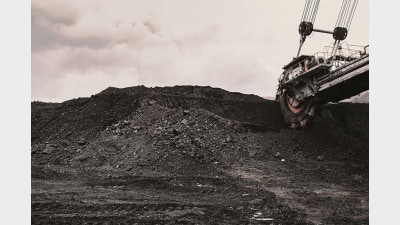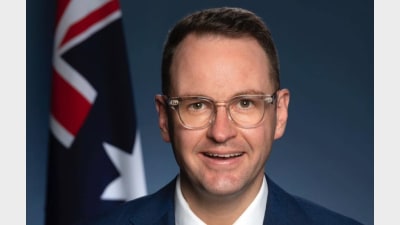Superannuation and tax – does a change in Govt rhetoric come at a cost?


The Government’s rhetoric around superannuation has noticeably shifted towards linking it with taxation. A Super Review roundtable examined the implications of this changing viewpoint.
Mike Taylor, managing editor, Super Review: One of the things that occurs to me is that suddenly the discussions around superannuation entail discussion of tax.
I mean not tax in the sense of applying a higher rate of tax to upper income as well, but funding it in some way being aligned to a tax, which was what the Mineral Resource Rent Tax was.
Now I’m actually old enough and was actually around and reporting it when the super guarantee came in, and it was a trade-off on wages.
It had nothing to do with tax, and in fact I think Kelty and Keating would have been appalled at someone saying it had anything to do with tax.
So do you think there needs to be a shift in the rhetoric so that superannuation remains in that non-tax area, or isn’t viewed as a tax, because the money is the members’ money: that 9 per cent rising to 12 has been sacrificed by the employer/employee, the employer driving it in there, it’s their money.
So it’s not something that the Government ought to be able to pull on for funds in a deficit. I’m just wondering you know what’s your take?
 Tom Garcia, chief executive, Australian Institute of Superannuation Trustees (AIST): This is part of the issue, isn’t it. We hear that it’s going to be $45 billion but that’s foregone tax - that’s not necessarily money that Treasury would end up with in their pocket, because if it didn’t go to super, more than likely it would go somewhere else – so it wouldn’t all go back to Treasury.
Tom Garcia, chief executive, Australian Institute of Superannuation Trustees (AIST): This is part of the issue, isn’t it. We hear that it’s going to be $45 billion but that’s foregone tax - that’s not necessarily money that Treasury would end up with in their pocket, because if it didn’t go to super, more than likely it would go somewhere else – so it wouldn’t all go back to Treasury.
But that’s just the amount that the Government is foregoing for people to be able to save money for their retirement.
And just to look at it as a tax, or amount of money we’ve given away because ‘we’re so generous and we need some of it back’, moves away from the whole idea of why it was designed in the first place, which comes back to what Brett was saying.
The whole idea is to provide retirement income streams for people in retirement. It’s not about giving someone a tax dodge.
They need to focus on this bit of building the retirement income stream, and equally, if we’re talking about $45 billion foregone, how much has it regenerated back into the economy, how much money are they actually getting from the taxes they are getting – because that’s never in the sum.
You could actually play that number out worse and worse if you wanted to – if you wanted to make a bad scenario – because there’s going to be 12 per cent going in, wages are going up, population is increasing. So the number will get higher.
All of a sudden, ‘oh no, it’s a much bigger number foregone! Well, that’s not the point; it’s what are we building over here, we’ve got to change where we’re looking, refocus back where we were looking.
 Brett Himbury, chief executive, Industry Funds Management: I think you’re right. It is deferred income, right, so you know in essence.
Brett Himbury, chief executive, Industry Funds Management: I think you’re right. It is deferred income, right, so you know in essence.
The other thing to add to it is the Australian system again is defined contribution [DB] right. Many others around the world are defined benefit, so as we all know, in a defined contribution system it’s my money; I put my three, six, nine, 12 per cent in, it’s mine.
What I get back will be a function of my defined contributions plus or minus any earnings over the years, as opposed to many other parts of the world where it’s DB, a multiple of salary or whatever else.
So again this system is somewhat unique in that we are a defined contribution predominantly these days.
I appreciate that there are the legacy DBs around, and in that sense it’s very clearly the members’ money. It’s the deferred money that they would have otherwise got in the form of wages, that they will take as an income in retirement or lump sum as the case may be.
Russell Mason, partner, Deloitte: And it’s also deferred money that has helped keep this economy buoyant and allowed Australia in my view to survive the GFC a lot better than many other countries, particularly in Europe.
Brett Himbury, Industry Funds Management: Very much so.
Russell Mason, partner, Deloitte: And that money keeps flowing into the Australian stock exchange.
It keeps flowing into investments, infrastructure and private equity in health funding; a lot of this growth has helped stimulate the mining industry, it’s only been good for Australia.
To tinker with it or to suggest that the tax regime needs to be changed is wrong. I agree with Brett: it was effectively salary sacrifice contributions, it was members’ salaries that were traded off for money into super and deferring, receiving that money in some cases up to 40 years [later].
Brett Himbury, Industry Funds Management: Employers may have seen it as a 3 per cent tax at the time, employers may have seen it as a tax – but the members saw it as foregoing pay rises.
Russell Mason, Deloitte: I worked for employers, you saw employers say, “well, we’re going to give a 5 per cent salary increase this year, we’ve got to give an extra 1 per cent super, so the benchmark has now reduced to 4, or whatever the number was.
You had to work with industrial relations consultants and with the HR director to know it was taken into account in any annual review of salaries. Every single year it went up with the vast majority of employers.
Mike Taylor, Super Review: Danielle?
Danielle Press, chief executive, Equipsuper: I can’t argue with any of what’s been said. I think super is absolutely critical to the wealth and prosperity of the country and it’s been amazing, but I think there is a time to look at it now and say “is it right?”, and do it in a bipartisan way.
I think that’s the key; do it in a sustainable way. I’m not sure whether the tax regime is the right way or the way it’s working at the moment is the right one.
It is extraordinarily complex for a system, so I think just because it’s working doesn’t mean we shouldn’t at least review it.
But I think it’s got to be reviewed in a considered way and a bipartisan way, and not just increase the taxes because we’re going on Budget today.
You know you’ve got to also look at what is the benefit in 30 years, when you don’t have the baby boomers on the pension obviously.
Tom Garcia, AIST: It’s a long way away.
Danielle Press, Equipsuper: It’s about what the Budget looks like in 40 years’ time, but obviously it’s a consideration that should be taken through.
So I think, you know – “hands off super” – as a practitioner and a CEO of a fund. I would love there not be any more changes to superannuation, I think that’s unrealistic.
Tom Garcia, AIST: When you’re saying that, are you talking about just the tax, because there’s always going to be changes?
Danielle Press, Equipsuper: I think it’s the tax, it’s the contributions, it’s that whole bucket at the moment I think we need to look at and say well how is this working and is it right.
I think they tried to do it through Cooper, but Cooper looked more at the product rather than the actual system, and Henry kind of touched on it and then they ignored most of it. Do it now, do it once, don’t keep messing with it.
Tom Garcia, AIST: And I think that’s key: there is time to get this right, it doesn’t have to be done today. To get the post-retirement system running properly we’ve got a few years so we don’t mess it up.
I guess it’s one of those things that you don’t want to look back in 20 years and have your children say, “you had all the signs saying that potentially you should have looked at something and changed some settings – and you didn’t, you just rushed or you did nothing”. What we’ve got to find is the balance.
Russell Mason, Deloitte: But change that improves governance – I think all of us would support that; change that improves the efficiency of the system is good, but not change for change’s sake, not change because there’s a $1.5 trillion nest egg there that we can’t keep our hands off from a tax point of view to help balance the budget.
That’s not good change. Change that makes it a more secure and better system for the end beneficiaries, all the members out there, the Australian population – that is a good thing and I think all of us would support that.
Danielle Press, Equipsuper: Yes absolutely.
Mike Taylor, Super Review: Alex?
 Alex Hutchison, chief executive, Energy Industries Super: I agree. I think it’s a disturbing and almost dangerous logic, the recent linking of the foregone tax argument, as the other participants have said. It’s a very new and a very disturbing piece of rhetoric and I think it doesn’t have a place in the current debate.
Alex Hutchison, chief executive, Energy Industries Super: I agree. I think it’s a disturbing and almost dangerous logic, the recent linking of the foregone tax argument, as the other participants have said. It’s a very new and a very disturbing piece of rhetoric and I think it doesn’t have a place in the current debate.
Mike Taylor, Super Review: Peter?
Peter Smith, head of distribution, group insurance, Metlife: It’s interesting from an insurance perspective. There seems to be a lot of change for change’s sake, and it seems there isn’t a great deal of post-retirement thought.
A lot of people are talking about it, but I don’t see a huge amount of action coming out of that and I get a bit confused as to why they’re not spending more time in that post-retirement space than with some of this tax stuff and all of the other stuff they seem to be doing. It seems a bit of an odd situation we’re in, and who are going to be the people that drive that change?
Recommended for you
Australia’s second largest super fund has added thermal coal companies to its list of investment exclusions.
The fund has expanded its corporate superannuation solutions to partner with Australian businesses of all sizes.
The chief executive of Aware Super anticipates a significant shift in how ESG factors will influence portfolio values in the next six years, surpassing the changes witnessed in the past two decades.
In a recent statement, shadow assistant minister for home ownership and Liberal senator for NSW, Andrew Bragg, accused ‘big super’ of fabricating data attributed to the Reserve Bank of Australia to push their agenda.












Add new comment